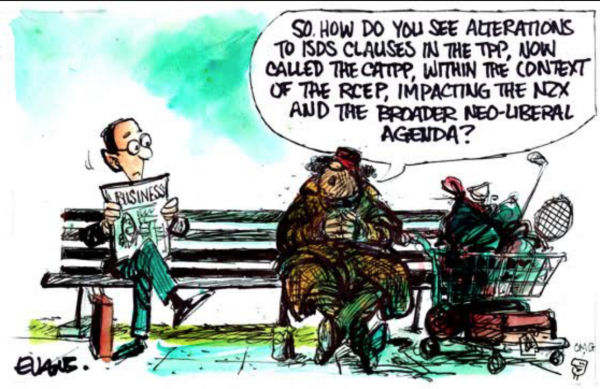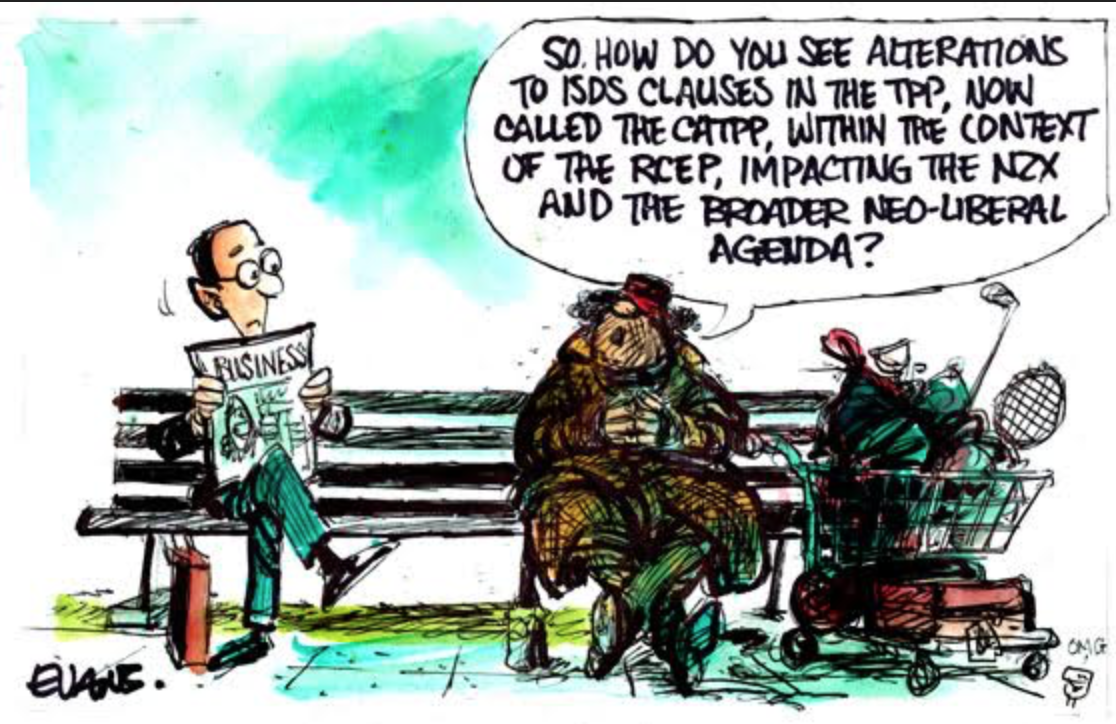
Auckland University law professor Jane Kelsey is ‘disappointed, but not surprised’ that the Labour government has endorsed the Trans-Pacific Partnership Agreement, with the suspension of a limited range of items, at the ministerial and leaders’ meetings in Da Nang, Viet Nam.
The failure of the meeting to conclude the new deal – rebranded the Comprehensive and Progressive Agreement for Trans-Pacific Partnership (CPTPP) – means there is now time for the new government to conduct in-depth consultations over its proposal to adopt the TPPA.
To have credibility the government must also commission the robust independent analysis that Labour called for in opposition, including realistic models that also cover the broader economic implications, especially for jobs and income distribution. That needs to include non-economic impacts on environment, health, human rights and the Treaty of Waitangi.
‘If the economics don’t stack up, as Labour said they didn’t with the original TPPA-12, then the new deal should not proceed’ said Professor Kelsey.
‘At this stage, the new government needs to give priority to its proposed full and participatory review of trade policy, and freeze existing and future negotiations until that is done.’
The draft ministerial statement from Da Nang has annexed a list of provisions being suspended, pending any future re-entry by the US. ‘This shows toxic items remain in almost every chapter, even if some of the worst are suspended pending a hypothetical US re-entry. However, their mere presence will ensure they resurface in future agreements’, Professor Kelsey said.
‘Labour came some way to recognising the systemic problems with the TPPA, not just the imbalances of power in favour of foreign investors and investor-state dispute settlement (ISDS). But not far enough. Vietnam and Canada held out for more. Why didn’t we?’, she asked.
Having matched the list against the texts, Professor Kelsey says the biggest relief will be for Pharmac – although the spectre of the US returning remains a threat. Retaining those suspended measures in the text runs the risks they will become precedents. Japan has already proposed them in the Regional Comprehensive Economic Partnership (RCEP).
There is no change to the pro-investor rules or the core investor-state dispute settlement (ISDS) mechanism. A provision that would allow foreign investors to use the TPPA’s ISDS mechanism to enforce contracts for infrastructure or natural resources has been suspended, as has the ability to challenge measures affecting certain financial investments. But investors can still use ISDS to enforce their special rights under the investment chapter, and the delegitimised ISDS process remains intact.






If NZ Labour where honest about TPP we’d hear this from them:
https://www.youtube.com/watch?v=_8mduTEvnU0
Every step allowed towards furthering Corporate domination of states will be built on.
Compromises are built on similarly.
Democracy is a sham where the power is stacked by wealth and withholding information or hiding the real agenda being perused.
Shame on the Puppets who voice “TINA” with fear of being overwhelmed otherwise.
The enemy of the people lies within the structure of our society and imposed economic system which ignores important human values and the finite world we over populate.
Smoke and mirrors replace a wider rational conversation towards a future.
And finally;
“The One World Government” (order)
This has been previously embraced by the Bush, Clintons, and Obamas era’s.
A progressive plan by the elite globalist’s produced at the “Bilderberg Group” meetings since 1952 and origionallly sketched out by members of the NAZI Party during the last days of the third reich in 1943.
And our past puppet PM attended Bilderberg. That was not reported in MSM which is run by the same crowd.
Comments are closed.